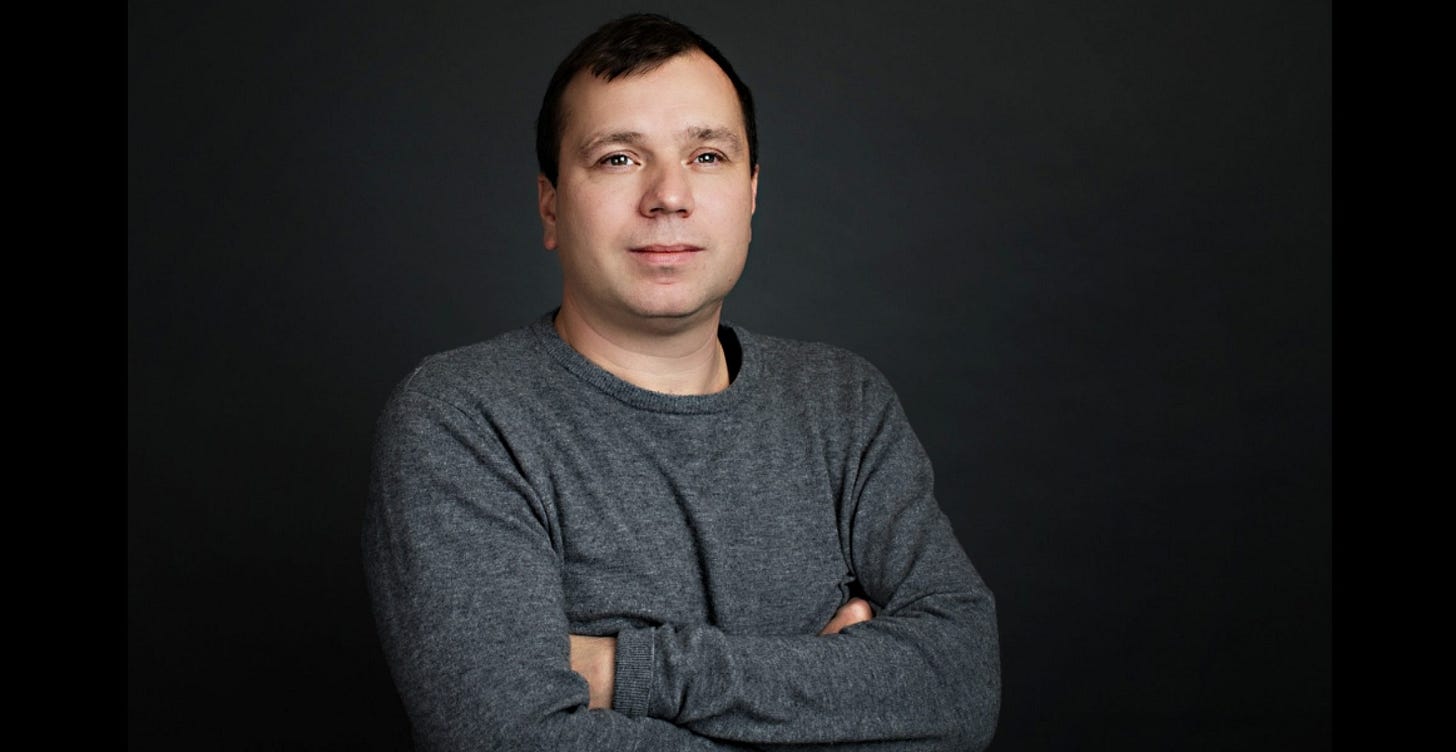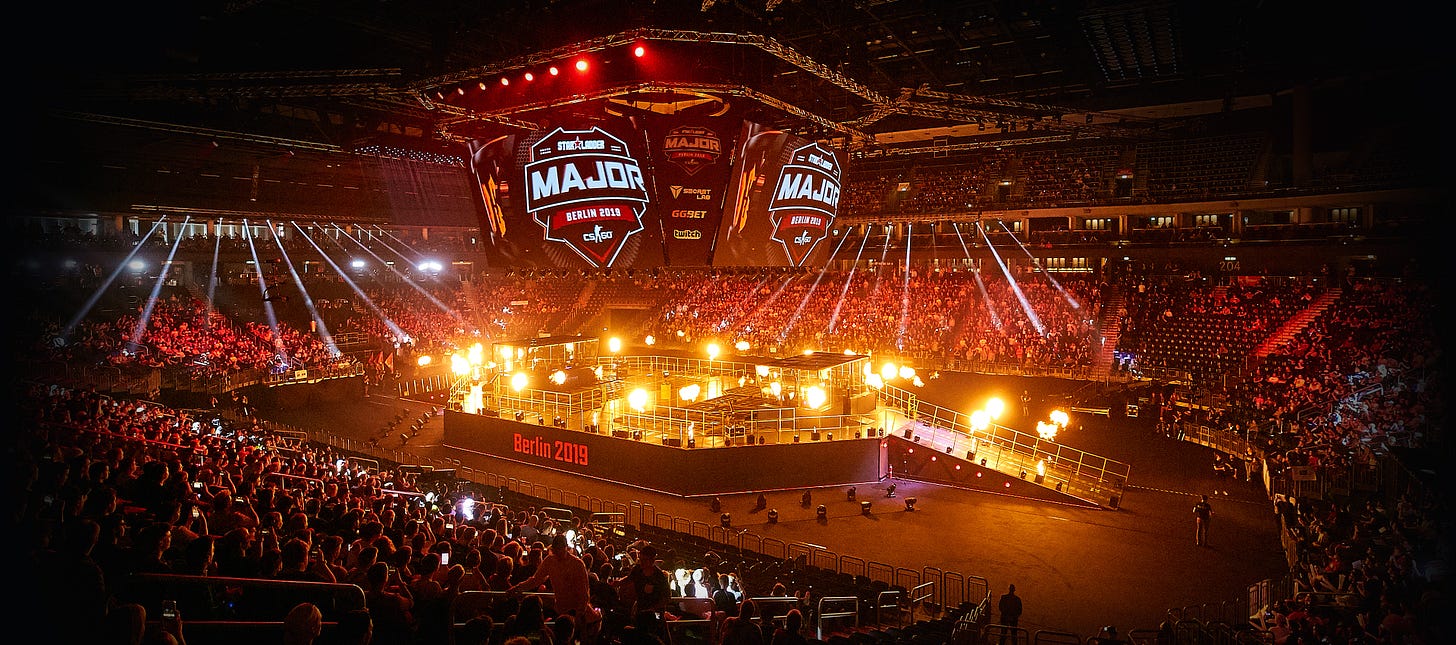Analysis: The Starladder Sale And What It Could Mean For The CS Esports Scene
Starladder was recently aquired by a company with historic ties to ESL raising concerns about the circuit
The long-running Ukrainian esports tournament producer Starladder was purchased by Nodwin Gaming for the sum of $5.5 million. The deal comes after Starladder had revealed they were making a return to producing Counter-Strike events in 2025 with some reports suggesting one would be an official Valve Major. Nodwin Gaming, owned by parent company Nazara Technologies, have produced esports events in the past, particularly in India and surrounding countries.
The deal however has raised some eyebrows due to a number of potential connections with the Savvy Games Group, owners of ESL, ESEA, Esports Engine, FACEIT and DreamHack, as well as overlap with executives of the Saudi Arabian Esports World Cup, namely CEO Ralf Reichert. While there is nothing explicitly forbidden about the move some industry experts are viewing it as a means to shore up control of the Counter-Strike space by a wealthy coalition of significant influence.
It comes at a time when Valve have taken a greater interest in regulating their tournament circuit. Their new rules hold tournament operators accountable in a number of ways, most notably by forcing commitment to tournament dates as well as ensuring there can be no exclusionary business dealings with participating organisations.
The Timeline
In 2018 Nazara Technologies acquired Nodwin Gaming specifically for the purpose of “executing its own esports tournaments. Shortly after that purchase ESL invested in Nazara to the tune of 1.11% in shares. As part of that agreement Nazara were given licensing rights to run events under the ESL India brand for five years which was executed by the Nodwin team. We know that in 2021 Ralf Reichert was given the designation of Director for Nodwin Gaming, that designation explicitly being referenced as active in the most recently available financial reports from Nazara.
Also happening in 2021 was a partnership agreement between ESL and long-running German esports marketing company Freaks4U. That agreement gave them the rights to produce ESL and DreamHack events with shared commercialization. Why would that be relevant? In 2024 Nodwin Gaming International, a subsidiary of Nodwin Gaming, purchased the majority stake in Freaks4U and placed several of its executives on the board of directors.
At the end of last year Nodwin “secured” investment from parent company Nazara to the tune of £5.9m.They then make the purchase of Starladder for a deal worth a reported $5.5 million with a $2 million cash payment. The owner of Starladder Roman Romantsov, will stay on to run the company but it isn’t clear who else will have influence over the operations. Certainly we know that there’s a number of former ESL staff now currently executive positions within Nordwin.
In February 2024 an eighteen-year company veteran Niels Wolter left ESL to work as Nodwin’s Chief Integration Officer. In the press release announcing the move Nodwin Gaming specifically stated that Wolter was the point of contact for their DreamHack India projects. Merlin Wiedeking who spent ten years at ESL and five years at Nodwin is now listed as a Director of Starladder on Linkedin. The Nodwin Co-founder Ashkat Rathee also explicitly listed ESL/EFG as being a partner that had “funded” them in a blurb for a n upcoming conference on Blockchain in Dubai.
Internationally Nodwin Gaming is also partnered with the Global Esports Federation (GEF) in a deal that enables them to operate approved esports titles in “India, Pakistan, Uzbekistan, Kazakhstan, Dubai, Bahrain, Jordan, Thailand, Vietnam, and the entire African continent.” In turn the Global Esports Federation is merged with the International Esports Federation (IESF) in a strategic partnership called the Esports Leadership Group (ELG). That entity is chaired by Prince Faisal bin Bandar bin Sultan Al Saud.
Starladder Events For 2025
For additional context many were surprised when Starladder announced their comeback for 2025. The scale and stature of the events the company was now producing was a far cry from their glory days. Being based in Kyiv had also, as expected, taken a significant toll on their both their livelihood and lives. Their last Counter-Strike Major, Berlin 2019, was plagued with problems and widely regarded in one of the lesser entries in the illustrious tournament’s history. So, when they confidently tossed their hat in the ring for four events across 2025 and 2026 there was a lot of surprise about their return. That surprise turned to shock when reports were circulated that they would be given the rights to another Major in December of 2025.
Starladder’s first event was due to take place in the last week of May this year but a decision by Valve to extend the timeline of the first Major of 2025 meant the events would overlap and therefore it was cancelled. In retrospect that decision could now take on a different significance.
There’s an industry-wider perception that ESL have fallen out of favour with Valve as they haven’t been awarded the rights to a Major since the Intel Extreme Masters Rio in 2022. If Starladder were indeed the choice that were producing the second Major of 2025 that would have been five in a row without ESL inclusion and none since the release of flagship title CS2. It’s not difficult then to see why people might believe ESL were on the outs. ESL have a long history of aggressive activity in the marketplace historically designed to hold dominant positions over certain esports titles. This includes an attempt to create an “exclusivity league” in 2015 purposefully scheduled for when Valve take their annual holiday in Hawaii. The sociopolitical implications of them being wholly owned by the Saudi Arabian Public Investment Fund has also further complicated business relationships by implication.
Valve
Valve have never explicitly made any public statement regarding these matters although a 2019 blog post entitled “Keeping Things Competitive” was viewed as a response to ESL’s LANXESS Agreement conditions being leaked to the public. Back in 2023 this publication revealed that Valve were going to create a framework that would mean the ESL and BLAST business models of “partnered leagues” would no longer be sanctioned by the game developer.
They’ve since constructed a new set of rules around their tournament circuit designed to stop tournament operators from having business relationships with teams that obligate their attendance at competitions or exclude non-partners. Now everything must be done via the Valve Ranking System (VRS) where teams are guaranteed invites based on points earned via sustained success over a competitive year.
Many recent business dealings have created a new set of potential conflicts of interest across the Counter-Strike ecosystem that aren’t explicitly covered by any codified rules. For example, the Esports World Cup (EWC) Club Program distributes stipends to its members that come with a number of explicit caveats. This creates an environment where organisations are beholden to certain tournament operators and goes against the spirit of the open tournament circuit, one that would empower players, Valve envisioned. We’ve already seen a questionable decision to not attend a PGL event from one of the EWC club program recipients. That came at the same time as a Na’Vi player stating that they “have contracts signed from the beginning of the year that determine when and where we compete.” These incidents certainly lend themselves to a suggestion that there are agreements being made behind the scenes.
It's hard to believe that with this latest acquisition at least creating some theoretical concerns that Valve wouldn’t want to know more about it.
Disclosure: The author has been hired for a number of events by tournament operator PGL who are mentioned in the article.






A lot of pro players have different opinions about the quality of Major in Berlin!
https://x.com/EL_pANdaRL/status/1170811418729426944
Everything else is a fucking conspiracy theory!